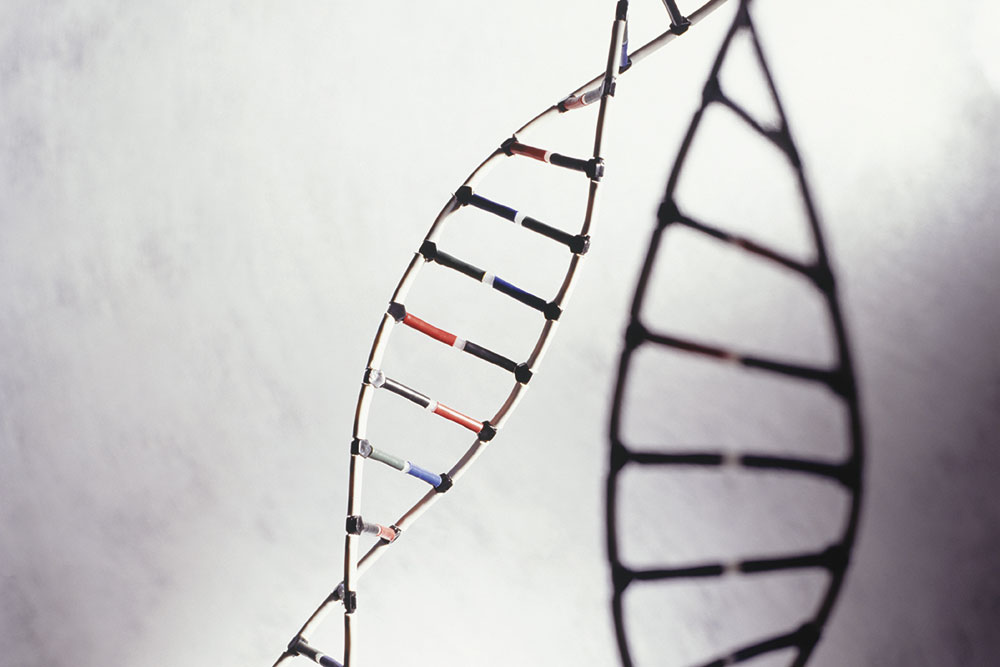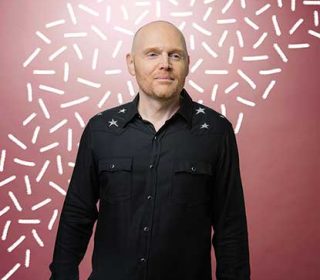Do you really know who you are?

You don’t have to be Alain de Botton to ask yourself life’s big questions. Indeed, it’s human nature to have an existential wobble every now and then and ponder who you really are, where you’ve come from or why you look and feel a certain way?
Up until now, you might have turned to more traditional methods for the answers – reading philosophy, having therapy or talking to friends and family. Now, you can embrace bleeding-edge technology to get the answers – thanks to DNA testing.
No longer the preserve of science fiction, DNA testing is today available to everyone. Either spit into a tube or swab the inside of your mouth and… well, that’s it. DTC (direct to consumer) companies do the rest and present you with the results. Not only can you find out about your genealogy, you can also investigate your genetic make-up, so the answers to some of your searching questions could actually be in the bottom of a test tube.
Here’s how you can find out more about yourself, mentally, physically and spiritually, to understand your past better and maybe get a firmer grip on the future.
THE TEST
A DNA test is as simple as either spitting into a tube or taking a swab of the inside of your mouth. In both instances, DNA is extracted from cheek cells. While we all carry the same genes, individual differences are created by the combination of alleles we inherit from our parents. We inherit one allele from each parent, resulting in three possible allele combinations of each gene (AA, BB or AB). If you have two copies of the same allele (AA or BB), you are said to be ‘homozygous’ and the effect of that allele would be stronger than if you had two different alleles, in which case you are said to be ‘heterozygous’.
TEST RESULT
Compared to blood testing, saliva testing is more accurate, convenient and has no risks to patients.
MIND
ME, MY SELFIE AND I
If you let it, ancestry can teach you more about your true self than a thousand ‘likes’ ever could. Social media – with all its retweets, views and so on – has given millions of people a distorted and rather shallow view of their real selves. Many are more self-obsessed than ever, without truly knowing who they actually are.
Perhaps this partly explains why the genealogy industry is booming. People seem to want to unlock something more profound about the context of their lives.
‘If you want to get really deep and philosophical, there’s a lack of a grand narrative in society,’ says Brad Argent, from genealogy site Ancestry.co.uk. ‘We don’t have religion or traditions, and cultures are now very transient and dynamic, and that’s a wonderful thing, but we don’t have this connection to any continuity.’
He adds: ‘Increasingly, people are turning to DNA to get a better sense of who they are. We live in a very homogenous society. There’s a Western cultural imperialism that seems to have pervaded everything and people are turning to this process as one way of finding out how they’re different. And there’s nothing more personal than DNA.’
A YEARNING FOR SOMETHING MORE
Genealogy (which is essentially tracking your lineage), it seems, has struck a chord with millions. Ancestry continues to thrive, while My Heritage has around 80 million members worldwide.
The appeal is obvious. If you’ve ever felt like the black sheep of the family, you might want to find out why. Similarly, if you’ve wondered why you’ve got blonde hair and green eyes, but every other relative is brunette with hazel eyes, thanks to DNA testing, the answer’s out there. And that seemingly inexplicable interest or attraction you have towards a certain culture might actually be in your blood. ‘Knowing this stuff runs through you,’ adds Brad, ‘maybe this shapes who you are a little bit.’
Once you’ve deposited your saliva into a tube and got your results back, there are, Brad says, two types of response: informational or transformational. In the former, someone will discover they have Celtic roots and reason, ‘That makes sense,’ because they know their family has Scottish and Irish roots.
However, the latter type can have a more profound impact. After all, imagine thinking you were 100% Scottish and letting that define you as a person, only to find out you’re Scandinavian or Eastern European.
‘It can change the way a person sees themselves,’ adds Brad. ‘It augments their identity. But it can also change the way they see other people.
‘Look, there’s no way of instantly changing people’s prejudices. But what I have seen
is people getting their results back and then questioning what they think not only of themselves but also of other cultures.
‘You stop classifying people by putting them into racial groups and start looking at them as human: everyone’s just part of the human race.’
And, at a time when the world has never felt more divided, such a sense of unity can only be a good thing.
FITNESS
TAILOR-MADE TRAINING
You’d be forgiven for thinking only elite sportspeople would use DNA testing to help them train better. But these days, with prices starting at £85, DNA testing to help improve your fitness is readily available to everyone.
Find a firm that suits (Fitness Genes and DNActiv8, are just a couple of DTC companies), simply swab your mouth, pop it in the post and wait. The findings could shape how you look after yourself.
MAN WITH THE PLAN
Take former England rugby Sevens player Sam Stanley. He undertook genetic testing in the hope of reducing past injuries and improving performance. By analysing Sam’s DNA, DNActiv8 produced a nutritional plan and recommended the best training methods to decrease his risk of future injury and maximise his training gains.
Analysing his results in six health areas, DNActiv8 founder James Brown changed Sam’s diet to include more vitamins, such as vitamin D and B12; because of his Samoan heritage, Sam’s genetic make-up means his skin colour is suited to sunnier climes than Britain, so an increase in vitamin D was vital.
Sam modified his lifestyle based on DNActiv8’s recommendations and went injury-free the following season for the first time in four and a half years as a professional. While Sam can’t put it down solely to the lifestyle changes he made, he also reported feeling more energised in the gym.
IT STARTS HERE
So does knowledge really mean more power? Genetic testing gives you the information about how your body is designed to perform. You might discover you will get much more out of endurance running compared to sprinting, for example, enabling you to train smarter and get more out of fitness sessions.
Nutritionist Claire Stone has had clients come to her after receiving genetic test results, and said results ‘were quite useful in terms of what genes might be causing or influencing health issues, but they took no account of any previous lifestyle preferences or habits’ in their recommendations, as they’re usually based on genetic composition, rather than how likely a person is to make changes to their daily routine.
Instead of providing definitive answers, DNA testing should be a starting point allowing you to apply the knowledge to your psyche and schedule. Then again, if you’re prepared to undergo a DNA test to get fitter, you probably possess the motivation to make the most of the results already.
PEAK TRAINING
Ensure your exercise regime is optimal for you by checking your DNA. For example, are your muscles better suited to power or endurance activities?
KEEPING FIT
The test can signal your personal risk of injury, so you can adjust your training to stay in top shape.
Read more: How do you maintain a healthy heart?









